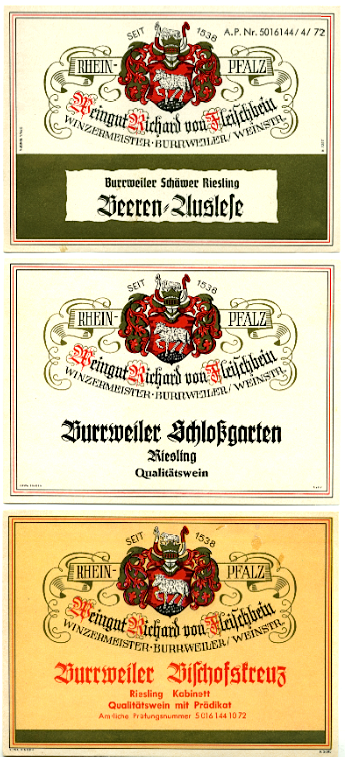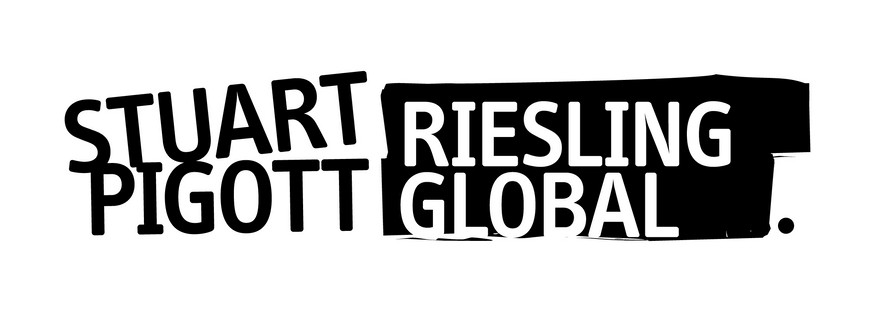
In exactly one month it will be the 45th anniversary of the so-called Judgment of Paris tasting at which a French jury placed red and white wines from Napa Valley/California first ahead of the most famous wines of France. It was the breakthrough moment for so-called New World wines, a term that then only applied to the wines of North America, but would later be expanded to include wines from all the wine continents outside Europe (the Old World). Unquestionably, it was one of the great turning points in the history of wine. However, in my personal history of wine one month earlier in 1976 is the more significant date, because it’s the moment that Riesling and I hooked up.
45 years ago today, yesterday or tomorrow aged 15 the wine behind one of the above labels gave me my first moment of wine inspiration. I was sitting in a small bungalow in a suburb of the industrial city of Ludwigshafen in Germany at the edge of the Pfalz (then Rheinpfalz) wine region. The bottle of Riesling came out of the fridge in the kitchen that was always packed full of wine and beer. When I arrived a couple of day earlier the father of my language exchange partner – he and I didn’t get on at all – introduced me to the fridge with the immortal word Selbstbedienung, self-service. It went straight into my vocabulary and also became my motto, at least for the contents of that fridge during those weeks.
Several other crucial things happened during those days and in my mind they’re all intertwined. I had my first serious crush on a girl and I started making notes. She rejected me, but pen and paper didn’t and we stuck together, just like Riesling and I. However, I’ve got an admission to make. Although I drank my first Riesling during these days in April 1976 I don’t know which Riesling it was. A few years back I found these labels, so I guess it has to be one of them. That’s how history is though. There are things you can pin down, things that are probable and other things that are very uncertain. However, because our memories of smell and taster are emotional and associative they can co things that dry historical dates and facts can’t. They can seed networks of experiences and knowledge the have enormous power over an entire lifetime.

